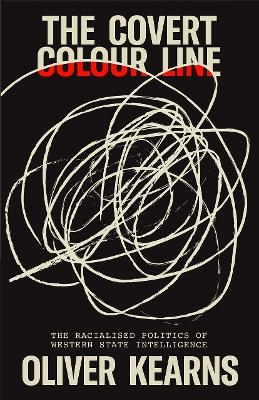
The Covert Colour Line
The Racialised Politics of Western State Intelligence
Seiten
2023
Pluto Press (Verlag)
978-0-7453-4730-1 (ISBN)
Pluto Press (Verlag)
978-0-7453-4730-1 (ISBN)
An innovative theory of state intelligence
Repeated intelligence failures in Iraq, Libya and across the Middle East and North Africa have left many critics searching for a smoking gun. Amidst questions of who misread - or manipulated - the intel, a fundamental truth goes unaddressed: western intelligence is not designed to understand the world. In fact, it cannot.
In The Covert Colour Line, Oliver Kearns shows how the catastrophic mistakes made by British and US intelligence services since 9/11 are underpinned by orientalist worldviews and racist assumptions forged in the crucible of Cold War-era colonial retreat. Understanding this historical context is vital to explaining why anglophone state intelligence is unable to grasp the motives and international solidarities of 'adversaries'.
Offering a new way of seeing how intelligence contributes to world inequalities, and drawing on a wealth of recently declassified materials, Kearns argues that intelligence agencies’ imagination of 'non-Western' states and geopolitics fundamentally shaped British intelligence assessments which would underpin the 2003 invasion of Iraq and subsequent interventions.
Repeated intelligence failures in Iraq, Libya and across the Middle East and North Africa have left many critics searching for a smoking gun. Amidst questions of who misread - or manipulated - the intel, a fundamental truth goes unaddressed: western intelligence is not designed to understand the world. In fact, it cannot.
In The Covert Colour Line, Oliver Kearns shows how the catastrophic mistakes made by British and US intelligence services since 9/11 are underpinned by orientalist worldviews and racist assumptions forged in the crucible of Cold War-era colonial retreat. Understanding this historical context is vital to explaining why anglophone state intelligence is unable to grasp the motives and international solidarities of 'adversaries'.
Offering a new way of seeing how intelligence contributes to world inequalities, and drawing on a wealth of recently declassified materials, Kearns argues that intelligence agencies’ imagination of 'non-Western' states and geopolitics fundamentally shaped British intelligence assessments which would underpin the 2003 invasion of Iraq and subsequent interventions.
Oliver Kearns is a research fellow with SPIN, the Secrecy Power and Ignorance Network, at the University of Bristol, UK. He studies how state secrecy, from drone strikes to spy radio frequencies, shapes the legitimation of violence. He also writes experimental electronic music.
List of figures
Acronyms and Abbreviations
Acknowledgements
Introduction: Ukraine, Iraq, and the failure of intelligence failure
1. Whispering geopolitics in a decolonising world
2. Dragons and tigers and bears, oh my: The invention of the mirror-image problem
Part Two
3. Getting to know Saddam Hussein
4. 'They buried things in the sand': The threat of Iraq and the secret of race
Conclusion: Libya, the Arab Spring, and the success of intelligence failure
Notes
Index
| Erscheinungsdatum | 17.04.2023 |
|---|---|
| Zusatzinfo | 17 Figures |
| Verlagsort | London |
| Sprache | englisch |
| Maße | 140 x 216 mm |
| Themenwelt | Sozialwissenschaften ► Politik / Verwaltung |
| ISBN-10 | 0-7453-4730-4 / 0745347304 |
| ISBN-13 | 978-0-7453-4730-1 / 9780745347301 |
| Zustand | Neuware |
| Informationen gemäß Produktsicherheitsverordnung (GPSR) | |
| Haben Sie eine Frage zum Produkt? |
Mehr entdecken
aus dem Bereich
aus dem Bereich
die Weltmacht im Hintergrund
Buch | Softcover (2022)
Klarsicht Verlag
CHF 30,80
Forschungsmethoden und Forschendes Lernen
Buch | Softcover (2023)
Kohlhammer (Verlag)
CHF 39,95


